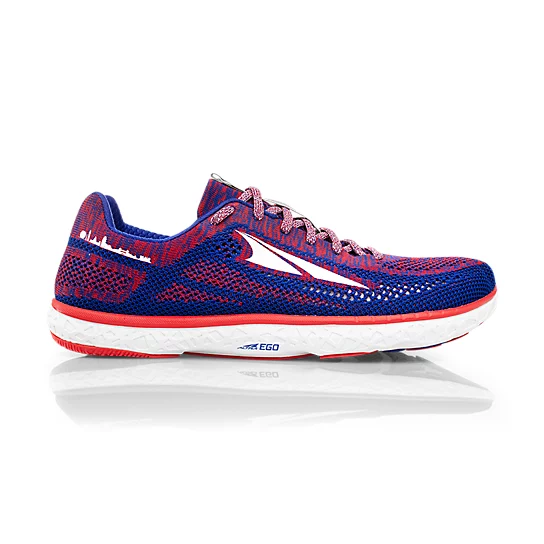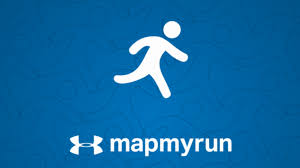Running is one of those things that many people try and end up quitting because they end up injured, puking, hating their life, or all of the above. I still consider myself a beginning runner, so I’ve compiled 10 of the top tips I’ve gathered on my journey so far to share with you so that you can avoid all of the unpleasantness mentioned above and find true enjoyment in running.
1. Invest in Proper Running Gear
I already mentioned this in my post 5 Things I Wish I Knew When I Started Running, but it’s important enough that I’ll say it again. You need to invest in a good running shoe. This is one of the most important things you can do to prevent pain and injury. Head to your local running store, and have an associate there help you find the right fit. I started out with the Altra Escalante Racer ’19 pictured here (with an insert to help me get used to the zero drop), which is never what I thought would be the best fit for a beginner like me, but I ended up loving it.

As well as finding the right shoe, I also recommend investing in other running gear such as clothes, a decent pair of socks, and a quality sports bra for women. It may seem like a lot of money to spend at first, but you will be amazed at the difference in running in good quality gear that lasts and maybe most importantly, doesn’t chafe.
2. Track Your Runs
If you’re not assessing, you’re guessing. At first, I felt like it wasn’t necessary to track how far I was running, but I quickly learned I needed to after I thought I had run 2 miles and found out it was actually closer to .2 miles. Your mind is your worst enemy in running, so it’s a good idea to know both how far and how long you have been running. There’s several apps you can use that are designed specifically for this-I have used Strava and MapMyRun. I enjoy being able to save my runs so that I can look at the progress I have made over time.


3. Have a Training Plan
When you’re starting out running, I highly recommend you have some sort of training plan in place. This will not only help prevent injury, but it will give you goals to work towards and help with the mental game. You make a plan once, and then you don’t have to struggle with deciding every day what you will do because you’ve already made that decision. If you want to be better at running, it’s best to have a variety of workouts and not just running. When starting out, I recommend making a weekly plan that includes:
- 2-3 running days
- 1-2 days with other exercises such as yoga, weight lifting, biking, swimming or some sort of strength training.
- At least 2 rest days
4. Start Slow
It’s important as a beginner to start slow. Depending on your fitness level, everyone’s beginning place may look different. For some- the walk/run method might be good where you start out walking and tracking your distance. Then slowly, try running that last 1/4 mile, then the last 1/2 mile, etc. until you are running the whole time. For others, it may be a slow jog for a mile, then gradually adding distance or quickening your pace per mile. By being patient and doing this, you will prevent injury and create a more sustainable long-term habit of running.
5. Sign Up for a Small Race
A great way to motivate yourself is to sign up for a race. I have found that I am motivated by external factors and I am more likely to be consistent with my running if I have a race to train for. As a beginner, try signing up for a smaller race like a 5k. Many marathons and half-marathons have 5ks as well, and most cities have a variety of fun runs or holiday runs you can choose from. Even better- find a friend you can do it with!
6. Make It Enjoyable
You’re more likely to make something into a habit, if it’s something you enjoy. And let’s be honest, running isn’t always the most enjoyable. One way I have found to help motivate me to run is to pair it with something I really look forward to-like listening to a good podcast. Help make your running more enjoyable by creating a killer playlist, listening to an audiobook or podcast while you run, or finding a beautiful location to run in.

7. Create A Rewards System
It works for my kids, and it works for most adults too. When you’re trying to form a habit of something that can be difficult- a little reward can go a long way. When I first started running and had trouble staying consistent, I started creating small rewards for myself. If I went running that day then afterwards I would look forward to a nice relaxing bubble bath- but only if I went running! Or if I stayed consistent for a month with my training then I could buy that new running top I’d been eyeing online. You know you best. Find small rewards to treat yourself for your good behavior. Eventually, after I had been running for a while, I found I needed less and less of these rewards and found a lot of fulfillment from just running.
A word of caution here: try not to undo a lot of the hard work you’ve done by treating yourself to a spread of junk food, too much alcohol, or something that might not make you perform at your best. That can often decrease your motivation and desire to keep up the habit of running.
8. Focus on Proper Breathing and Form
Many beginners have no idea that there are breathing techniques or proper form that can help with your running. This could be a whole separate post but let’s talk about the very basics here.
- Deep Breathing– Instead of relying on your chest to breathe, train yourself to breathe deeply from your belly.
- Inhale through the nose and exhale through the mouth
- Rhythmic Breathing– Try to make a habit of breathing with your cadence. A 3:2 pattern is often recommended for beginners which means you inhale fully on LEFT-RIGHT-LEFT foot strikes, and then exhale on RIGHT-LEFT. Then you would alternate so that each time you exhale, you switch which foot you land on. You may have to slow down your pace to practice this, but this process will help bring oxygen to your muscles.
- Keep your head high, look straight ahead (not at the ground), shoulders back and arms tucked in

9. Win the Mental Game
Running is way more mental than physical. Just knowing that from the start can often be a big help. Your mind will almost always give up before your body does. With that in mind, try to focus on ways to train your brain. Many of the tips I’ve already mentioned such as having a plan, tracking runs and pairing running with something enjoyable are ways to help win the mental game with running. Think ahead of time of what will be harmful or helpful to your mind. For example, I rarely run on a treadmill strictly because of how hard it is mentally for me. I can run a mile outside much easier than I can on a treadmill. Another thing that has helped me is running in the morning when I know I feel the most motivated. If I wait until the evening, mentally I’m not always at the top of my game. Maybe you need a friend or accountability partner to go with you or report to. Just find what works for you.
It requires self-discipline, and I have found that over time my mental strength has increased just as much as my physical strength. Remember, you CAN do hard things and you CAN do more than you think you can. Over time, you will be both pleased and proud of yourself with the progress you have made.
10. Make Time for Proper Recovery

One of the most important things you can do as a beginning runner is to prevent injury, and the most important way to do that is with proper rest and recovery. As I mentioned earlier, make sure you plan for rest days. Your body needs that time to repair and build muscle. Also make sure that you stretch before and after your runs. I also recommend getting a foam roller like this one I purchased on Amazon to use on your muscles after runs. Another part of recovery is fueling your body with the right stuff. It’s always good to eat or drink something high in protein after your runs to aid with muscle recovery. Depending on the time of my run, I like to drink a protein shake after, or go straight into a meal such as eggs and toast, or chicken/ some type of meat for dinner.
I’ll be doing a separate post in the future focused specifically on rest and recovery and how to properly take care of your body.
What are your top tips for beginner runners?

This is a beautifully written, well composed list and totally relevant instruction for every runner. I feel like I had to learn each of these tips the hard and clumsy way. I will be sharing this with many others. Thank you😊
Thank you! I also had to learn these things the hard way, so hopefully this will help others not have to!